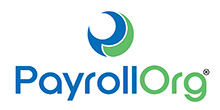If an employer has operations in more than one state, income tax might need to be withheld for multiple states. In fact, at times the employer might need to withhold income tax for multiple states from the wages of one employee. Withholding can become
complicated when an employee lives in one state and works in another or performs services in more than one state.
Determining Where to Withhold Income Tax
The default rule of state income tax withholding is to withhold income tax for the state where the employee performs services (the work state). Almost all states require employers
to withhold tax from employee wages earned for work performed in that state, even for nonresidents. If the employee works and lives in the same state, the analysis ends here. Also remember withholding is not required for the nine states that do not
have a state income tax: Alaska, Florida, Nevada, New Hampshire, South Dakota, Tennessee, Texas, Washington, and Wyoming.
In addition to the work state, the employee’s state of residence must be determined because a resident is subject to the laws of that state, including its income tax laws. States have the power to tax all income of residents, even
income earned for work performed in a different state. State definitions of residency vary, so state laws and regulations must be consulted when making the determination.
Nexus
An employer might be required to withhold income tax from wages for an employee’s state of residence – even if the employee does not perform services there – if the employer has a business presence or operations
in that state, also referred to as nexus. The presence of a business location, such as an office, store, or factory in the state will create nexus there, as will the mere entry of an employee to make a sale or perform a service call. Additionally,
an employee working remotely from his or her state of residence on an occasional basis might be enough of a business presence to create nexus.
Reciprocity
When two states have a reciprocal agreement for tax purposes, it makes things administratively easier for the employer. The employer will only need to withhold for the state of residence, not the work state.
Employees Working in Multiple States Without Reciprocity
If an employee works in multiple states that do not have reciprocity with the employee’s state of residence, then the laws and requirements of both states must be considered. The employer might need to withhold state income tax for both the work state and the state of residency.
Double taxation is not prohibited by the U.S. Constitution as long as it is not arbitrary, but most states help residents avoid double taxation via a variety of methods, including reciprocity agreements, allotment or apportionment rules, and credits for taxes paid to other states. Some methods will affect whether the employer is required to withhold for each state and the calculation of the amount to withhold for each state.
State Nonresident Taxation Thresholds
Some states do not require an employer to withhold tax from employee wages until an employee has met a certain threshold number of days worked or an amount of wages earned for services performed
in the state. States have inconsistent, differing requirements. Typically, once the threshold has been met, the employer must withhold from the commencement of services performed within that state. Because retroactive withholding can be complicated,
some employers begin withholding from the commencement of services in a state.
Remote Employees and the Convenience of the Employer Test
When an employee works remotely from a different state than the location of the office where the employee reports, the employee is subject to tax by the state of residence. However, some states use the “convenience of the employer test” to source income back to the “office” state. As many employees have gone from full-time remote during the pandemic to a hybrid office/home office, knowing where to source income can get complicated.
In New York a nonresident who performs services for the employer both inside and outside of New York may apportion New York income based on the number of days that services are actually performed within New York. The caveat is that the nonresident employee must prove that the work performed outside of New York is done so for the employer’s necessity, and not the employee’s convenience. This is historically difficult to prove.
Connecticut, Delaware, Nebraska, New Jersey, and Pennsylvania also use the convenience of the employer test. The laws in Connecticut and New Jersey only apply to employees who are residents of states that also impose a similar test.
Education Links:
- Guide to State Payroll Laws
- State Book Combo
- Guide to State Payroll Laws
- PayState Update
- State Book Combo Online
- Guide to State Payroll Laws
- PayState Update
- Payroll Issues for Multi-State Employers
- State and Local Payroll Certificate Program
- PayState Update

